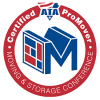Moving Checklist
Need help organizing your move? Download our moving checklist from the Texas Department of Motor Vehicles.
Here Are Our Top Tips for a Smooth Move
Whether you’ve already made some big moves in your life, or you’re making a move for the first time, be sure to seek help for this complex process. There is plenty to think about beyond just packing and loading boxes onto a truck. No matter the size of your move, All Points of Texas is here to help. We’ve worked with clients across Texas get settled into their new home with as little stress as possible. Our movers have come up with a comprehensive moving checklist that you can use whether you’re moving across town or across the state. Have a question about any phase of the moving process? Don’t hesitate to reach out to us for assistance!
Categorize Your Move in Phases
It’s no secret that moving is a complicated, detailed process. Many times, packing up all your belongings is more time-intensive and stressful than you might expect. Fortunately, All Points of Texas has lots of tips and tricks to making the moving process much more manageable. The best thing you can do leading up to moving day is plan, plan, plan. We often recommend dividing your move up into phases. Below, you’ll find out what to do during each phase of your upcoming move.
Before Your Move
Before moving day, there are plenty of details to take care of and loose ends to tie up. With so much to think about it, it’s easy to get overwhelmed. Here’s what to know as moving day approaches:
Plan Your Move at Least Six Weeks Out
Six weeks before your move, it’s time to start thinking of the big picture. First, consider how you’d like to take on the moving process. While you could move some of your possessions on your own, the easiest way to take on a big move is to utilize a moving service. At All Points of Texas, we’re proud to provide a full suite of services for your convenience. During this time, it’s also a good idea to start purging any items that won’t make the move with you. You’ll also want to gather important documents, such as school records, so they don’t get lost in the move. Other things to take care of include:
- Create a moving binder with an inventory of your items, receipts, and estimates
- Order tape, bubble wrap, and boxes for moving
- Take measurements of your new home and your current furniture
Choose Your Mover Carefully
You should start considering local moving services no less than six weeks before a move. Be sure to research each of your options and think about the advantages of each company. No matter how far you’re moving, you’ll want to choose your movers carefully. After all, they’ll be handling some of your most valued belongings. Here are some basic guidelines for selecting the right mover:
- Make sure the moving service is properly registered
- Never rely on verbal agreements—make sure you have documentation
- Consider their level of liability for your belongings
- Read all documents before signing
- Obtain a copy of the movers’ Rights and Responsibilities brochure
- Be sure your moving company is equipped to handle the details of your move (i.e., elevators, long-distance carries, heavy furniture)
What to Do One Month Before Moving
One month before moving day is where the real work starts. By now, you will have chosen a moving company. Make sure to obtain written confirmation of cost estimates, moving date, and times. You should also begin notifying the relevant people about your move. Be sure to do a change of address at your local post office, and begin letting your bank, insurance companies, utility companies, schools, and government agencies know of your relocation. It’s also a good idea to begin thinking of doctors close to your new home and forward your medical records.
Packing Best Practices
Perhaps the most important part of this moving phase is packing. While you don’t want to box up everything this early, you should start packing up things you don’t use often. Out-of-season clothing, sports gear, and certain cooking appliances are all examples of items you can probably box up. Below, you’ll find a few best practices when it comes to packing for any move:
- Label each box with contents and the room it goes to
- Pack valuable items such as jewelry, heirlooms, and documents and move these items in your own vehicle
- Never overload boxes
- Mark fragile boxes
- Use towels as padding for breakable items
- Make use of your suitcases
Two Weeks Before Moving: What to Know
Two weeks prior to moving day, you should still be packing up your belongings as needed. Continue to be diligent in taking inventory of your belongings and labeling boxes, as this can save you a major headache once you arrive at your new home. Besides packing, you should also request time off work for your move, as well as have your car serviced. By taking care of these details early, you can save yourself engine breakdowns and emergency call-ins to work. If you’re changing banks, make sure to clean out any safe-deposit boxes.
Navigating the Home Stretch Before a Move
Congratulations—you’re in the home stretch of your move! One week before moving day, start getting your old place cleaned up. You may want to hire cleaners to get your home or apartment spick and span before you leave for the final time. Renters especially may want to patch over any holes or repaint chips in the wall. In addition to your old home, you may also want to do some cleaning at your new place. After all, it’s much easier to clean an empty house than one filled with furniture! Once the cleaning is taken care of, continue packing up the rest of your belongings, leaving only enough clothes for the rest of the week.
What to Expect During Your Move
The big day is finally here! Even if you’ve followed our guide this far, you likely still have some lingering stress about the move. The best thing you can do to promote peace of mind is to take an inventory of your boxes before leaving. This way, you’ll be able to account for everything upon delivery. Be sure that the moving truck that arrives is from the correct company and the movers have the proper credentials. Before the truck leaves your old home, remember to do the following:
- Sign and agree to inventoried items
- Give any special instructions to movers and be available to address their questions
- Sign the Moving Services Contract before loading your items
- Take a final look around after loading to ensure nothing is left behind
What to Know About Delivery Procedures
You’ve done the hard work of planning, packing, and loading, but there’s still one more phase to moving—delivery. Always supervise the unloading of your belongings and check their condition as they come off the truck. If something has been damaged on the trip, report it right away. There will be space on your contract to note any damaged items. Upon delivery and unloading, our movers will provider you with a completed copy of your contract with an itemized bill. If everything looks good, it’s time to sign your final inventory document. Soon enough, you have everything unpacked and in its place!
Want to Know More? Contact Us!
Whether you’re ready to request our moving service or just have some questions, our team is here for you. Our team of local movers is excited to be a part of your journey to your new home, whether that’s in Houston, Grand Prairie, DFW, San Antonio, or elsewhere in Texas. We’ll ensure all the details are taken care of, addressing each of your concerns along the way. In addition to home moves, we can also handle local moves of all kinds, including office and commercial moves. Contact us today to learn more about what we can do for you.



